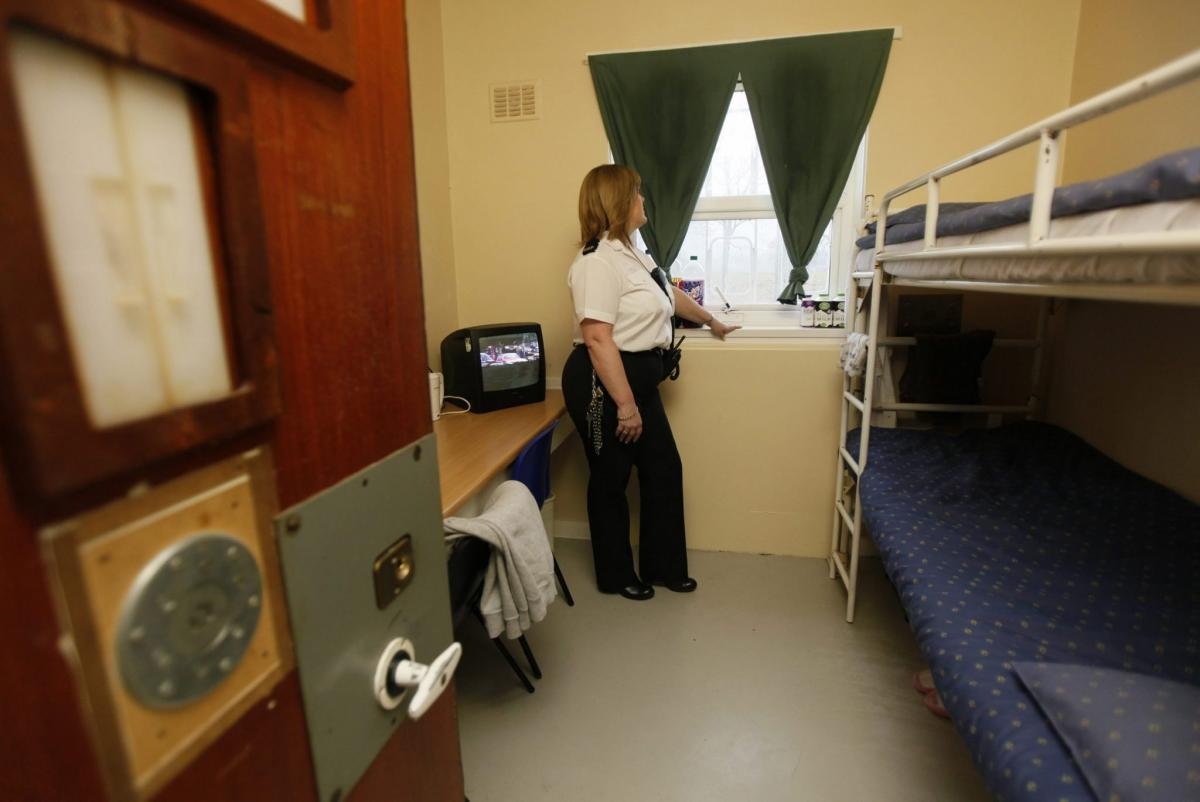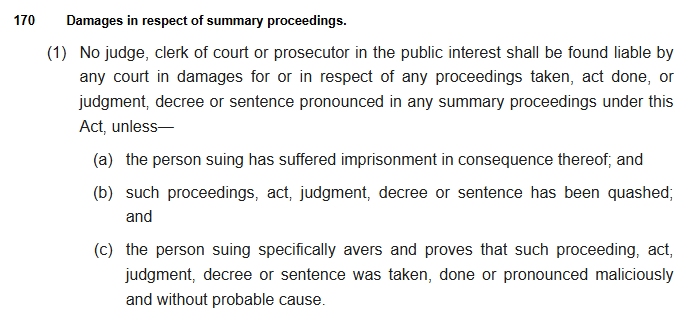KENNY CALLS FOR FERRY ACTION.
EMBARGO: Wednesday 12 January 2022, 11:00 am MACASKILL CALLS FOR ROUTE DEVELOPMENT FUND TO ENSURE DIRECT FERRY LINKS TO EUROPE SCOTTISH GOVERNMENT LESS RADICAL THAN MCCONNELL ADMINISTRATION Speaking today (Wednesday) in a Westminster Hall Debate on Direct Ferry Services between Scotland and Mainland Europe, Kenny MacAskill MP will call on the Scottish Government to establish a Ferry RouteContinue reading "KENNY CALLS FOR FERRY ACTION."

EMBARGO: Wednesday 12 January 2022, 11:00 am
MACASKILL CALLS FOR ROUTE DEVELOPMENT FUND TO ENSURE DIRECT FERRY LINKS TO EUROPE
SCOTTISH GOVERNMENT LESS RADICAL THAN MCCONNELL ADMINISTRATION
Speaking today (Wednesday) in a Westminster Hall Debate on Direct Ferry Services between Scotland and Mainland Europe, Kenny MacAskill MP will call on the Scottish Government to establish a Ferry Route Development Fund and will accuse Scottish Ministers of being less radical than former First Minister Lord Jack McConnell who established the air route development fund. He will also call on the UK Government to replace the EU Motorway of the Seas funding following Brexit.
Opening the Debate Kenny MacAskill MP will state:
“Connectivity is critical, if not King in the 21st century. As coronavirus has shown telecommunications are vital, allowing for home working and businesses to operate even during lockdowns. Zoom and Teams have come to the fore even in this House and have proven essential for many. But other more established and certainly physical methods of connectivity are equally vital.
“Road, rail and air have shown how essential they are in a globalised world and have been supported by governments both sides of the border, even before coronavirus struck.Yet there’s one major aspect of connectivity where Scotland’s been left high and dry. That’s in direct ferry links to mainland Europe. It’s not just a longstanding issue but a longstanding omission. It was a major gap even before coronavirus and Brexit impacted. They have simply compounded the existing need.
“Road freight has been hit hard through driver absence and Customs nightmares, let alone additional bureaucracy. Trade which could have gone swiftly and with ease from a safe Scottish harbour has been struggling to access routes south and even then, facing delays and backlogs at English ports. The spectre of arterial roads becoming truck parks as lorries backed up and loads rotted in the back, would be laughable, if it wasn’t so tragic.
“At the same time the cost of fuel has rocketed. Not only have there been challenges with fuel shortages, but profitability has reduced through having to trunker goods to ports a considerable distance south. Whether the Tyne or Humber or even beyond to the channel ports. The former are a considerable distance but the latter, especially for seafood or other perishable items, were already an absurd journey. But one that has been made so much worse through additional delays and impediments.
“There’s yet another compelling reasons for investing in maritime links beyond the connectivity it provides. For despite COP 26 taking place in Glasgow little thought has been given to improving maritime links for their environmental benefit. There are issues with maritime fuel and action to address that whether in reducing the pollution from marine diesel or exploring alternative fuels such as batteries is essential. However, it’s still better for our environment to load freight aboard one ship, than have dozens if not hundreds of lorries struggling down congested roads.
“Yet these risks which were known to be looming on the horizon, as were these opportunities which would be beneficial, economically, socially and environmentally. it’s not as if it many of the events that have occurred weren’t foreseeable, even for those who only foresaw sunny uplands for Brexit.
“Custom delays were always going to kick in and other nations such as Ireland prepared. But shamefully that wasn’t done in Scotland by either the Scottish or UK Governments.As a result, many businesses have paid a heavy price.
“Now it’s not as if Scotland lacks access to the seas or is devoid of ports. The nation has the facilities and historically has the links. Scotland was always linked by sea routes to Europe, and they continued even when major trade moved to the west coast and the Atlantic.
“Pantiles on the roofs of many homes in my East Lothian constituency testify to the links with the Low Countries. Along the shores of the Forth, in the port of Leith where I was born, street names are equally redolent. Baltic, Cadiz and Hamburg though the name was changed to Hamburgh during the First World War.
More recently the Superfast service which sailed from Rosyth to Zeebrugge and was enjoyed by many, benefitting both trade and tourism. That port and the facilities constructed for the Ro-Ro services still exists. Despite the valiant efforts of the Honourable Member for Dunfermline West, it’s currently serving as a safe harbour for berthed Cruise ships with the Ro-Ro infrastructure moribund. Rather than providing a major link for Scottish trade and tourism. Other options exist whether in existing harbours or in the potential for a new port at Cockenzie in my own constituency.
“So, the historic links remain, and even installed infrastructure remains. So why has there been no progress in launching routes both over past years when they’d have been welcomed or now when they’re essential. It’s not as if the maritime sector globally let alone in Europe has been idle. Other nations have acted and so must Scotland.
“Ireland seeing the problems that Brexit would bring, prepared adding significantly to services already operating. Despite distance and sail times being longer, Ireland ensured alternatives to the land bridge that was the previous favoured route for many. That meant sailing to a port in Scotland, Wales or England, then journeying on via the UK motorway to the Channel ports.
“Not for them a Boris Bridge or any other delusional nonsense. Instead, they arranged to sail direct to Europe. Direct freight routes were expanded, and passenger services increased. Thus, avoiding customs backlogs, reducing road journeys, avoiding the difficulties of driver absences through illness or self- isolation and making environmental gains.
“In Ireland three main operators now offer passenger ferry services. Brittany Ferries, Irish Ferries and Stena Line offer services, some sailing up to 5 times per week from Cork, Dublin and Rosslare and heading to Roscoff, Bilbao and Cherbourg. Ensuring access to their principal markets and allowing for inbound, as well as outbound tourism.
“They are not the only routes available across the Irish Sea to access Europe. Other services provide for freight only, whether for vehicles with haulage or unaccompanied freight. Since Brexit services and routes increased allowing further options and avoiding the problems that have arisen especially at the Channel Ports.
“Scotland and Ireland have similar sized populations, and both are dependent on trade and tourism. For both countries Europe is a big and major market. In several instances Ireland is a direct competitor. Yet Irish maritime links are growing almost exponentially, and Scotland remains tied up in port with increasing paperwork.
“But it’s not just Ireland that has been acting to increase maritime links. Countries across Europe have been taking action to address the challenges they faced, even if not the Brexit imposed customs debacle. Allowing for new opportunities for trade and tourism. Many have accessed funding from the EU, but all have been financially assisted by government to develop.
“A tender has been issued to re-establish a ferry link between Greece and Cyprus. Support funding of 5.5 million euros being provided for a three-year service with the possibility of an extension beyond. Other nations have acted similarly. Stockholm, Sweden to Rostock, Germany is to begin this spring. Yes, it’s having a state subsidy but its saving on CO2 and other costs. And it’s not just in the Baltic but the North Sea, as a Norway to Netherlands service is to commence in April.
“So why are we devoid of action in Scotland? Transports largely devolved and therefore much of the failure to date and indeed action that needs to be taken rests with the Scottish Government. They have failed to show any sign of urgency let alone shown any sign of ambition for the country.
“Instead, they have remained thirled to a free-market dogma that you expect from London but could and should be rejected by an administration with Scotland’s interests at heart. A Four Nations approach may have merit in aspects of health policy. But with ferries it’s an approach that leaves Scotland isolated, sucking everything into the ports in England and leaving Scotland marooned.
“However, the UK Government cannot absolve itself of blame whether in its free-market dogma that has privatised critical infrastructure such as ports, but which is a debate for another day. More importantly who promised to match or exceed former benefits of EU membership that once applied. But Motorway of the Sea funding a scheme once available due to EU membership and created for the purpose of establishing maritime links between nations hasn’t been replaced by any scheme, yet alone by a better one.
“Both the UK Government and the Scottish Government claim they support the establishment of new services, they insist they must be market driven. That is entirely self-funding and with no state support. A new venture is therefore expected to launch without any state ballast or even a lifeboat to ensure survival.
“Yet that doesn’t apply in other modes of transportation. No one would dream of suggesting that a haulier required to provide the road network or that a rail freight operator should build a rail line. But that’s state support albeit in a different way. Expecting an operator to acquire ships and launch the service without any support is equally perverse.
“Why shouldn’t assistance be given to start maritime links, matching support for road and rails and replicating what is standard in other countries? The M74 extension, the AWPR and upgrading the A9 are all about improving Scottish connectivity and are not left to the haulage sector.
“Scotland rightly lauded new rail links that were opened such as Stirling Alloa and Airdrie Bathgate. Both of which have proven spectacularly successful. Support is being given to reopening new stations with East Linton and Reston to come.
“Even aviation has seen supported with bail outs given to keep airlines alive and a Route Development Fund once provided as I’ll expand on. So why the preclusion of maritime links?
“The UK Government dogma of being market driven and which neither applies in other transport modes nor is echoed in other lands might be expected from a Tory government but has shamefully been mirrored by the Scottish Government. Communications from the Scottish Transport Minister have parroted the UK line and ignored the steps that other small and even competitor nations have taken such as Ireland and Norway. As a result, Scotland is losing out. Two matters make that position particularly perverse.
“Firstly, Scotland routinely funds ferry services. Considerable financial support is rightly given to backing both Caledonian McBrayne and Northlink ferries. With Cal Mac it’s upwards of £120 million per annum and there’s even more provided for boats and piers. Orkney/Shetland services receive approximately £45 million per year in support. No one would question that. It’s essential as they are lifeline services and neither roads nor railways can be provided. It’s a sensible provision of public funds.
“Why then should it be different for Scotland as a whole? Why is it legitimate and sensible to support internal maritime links but refuse to do so for external ones? Why should a government argue that an island nation which requires to trade with Europe and encourage European visitors, should not support maritime services?
“Why can they not be supported when only a fraction of the funds already spent on maritime support would be required and the economic returns would be considerable?
“Secondly, Scotland previously operated a Route Development Funds to establish direct air links. That was seen as essential in growing trade and inbound tourism, as well as despite the environmental impact of aviation avoiding an additional flight, almost invariably to a London airport. That was supported by all major parties and applied until EU regulations brought it to a halt in 2007.
“EU regulations no longer apply, so why no Brexit bonus? In any event as with Motorway of the Seas funding both the EU and nations such as Ireland and Norway now see the benefit of state support for vital connectivity. That and reducing carbon emissions by reducing road freight and growing unaccompanied trailer use.
Scotland is losing out in competitiveness and convenience to Ireland and other nations. Scottish trade and tourism are suffering and promises from COP26 ring hollow. Demands on the public purse are many and resource is limited, especially post Covid.
“But funds are still able to be found by the UK Government for HS2 even in a truncated form and which will come nowhere near Scotland. Millions were also wasted on seeking to reopen a channel port when ports were available in Scotland and only the ferry service was lacking.
“That attitude might be expected from a Tory Government thirled to a market driven dogma and oblivious to Scottish needs. But it’s entirely inexplicable for an administration that claims to have Scottish interests at heart. What does it say when the administration of Lord McConnell of Glenscorrodale was more radical in providing air routes for Scotland, than Nicola Sturgeons is with maritime links?
“Scotland deserves better. It requires connectivity in all forms of transport as in telecoms. It needs ferry services to Europe.
“Will the Minister commit to funding an equivalent to the EU Motorway of the Seas scheme and applicable for all parts of the UK, including Scotland?
“And finally the Scottish Government must establish a Ferry Service Route Development Fund to launch and sustain them. Scotland deserves no less”.
ENDS.
BEAT THE CENSORS
Sadly some sites had given up on being pro Indy sites and have decided to become merely pro SNP sites where any criticism of the Party Leader or opposition to the latest policy extremes, results in censorship being applied. This, in the rather over optimistic belief that this will suppress public discussion on such topics. My regular readers have expertly worked out that by regularly sharing articles on this site defeats that censorship and makes it all rather pointless. I really do appreciate such support and free speech in Scotland is remaining unaffected by their juvenile censorship. Indeed it is has become a symptom of weakness and guilt. Quite encouraging really.
FREE SUBSCRIPTIONS
Are available on the home and blog pages of this website. A subscription ensures you will be notified of all future articles and you will be joining thousands who have already done so. You will be very welcome.
What's Your Reaction?











































